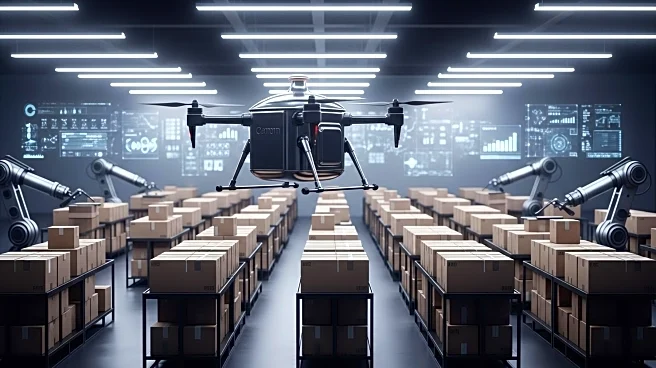What is the story about?
What's Happening?
Global supply chains are undergoing a transformation driven by autonomy and artificial intelligence. Companies are increasingly adopting autonomous systems to enhance resilience against disruptions such as pandemics, geopolitical tensions, and economic shifts. Despite efforts to diversify and optimize costs, many companies struggle with operational rigidity, limiting their ability to adapt quickly. Accenture's research highlights a decline in operational resilience and emphasizes the need for autonomous systems to improve agility and efficiency. The study suggests that higher autonomy can significantly reduce reaction and recovery times, boost profitability, and enhance sustainability.
Why It's Important?
The shift towards autonomous supply chains is crucial for businesses seeking to navigate an increasingly volatile global environment. By leveraging AI and autonomous systems, companies can achieve faster decision-making, reduce costs, and improve customer service. This transformation is expected to drive long-term growth and sustainability, offering a competitive edge in the market. However, challenges such as data quality, cybersecurity, and workforce adaptation remain significant barriers to full autonomy. Addressing these issues is essential for realizing the full potential of autonomous supply chains.
What's Next?
Companies are expected to increase investments in supply chain autonomy, focusing on AI-driven solutions and human-machine collaboration. As industries progress at different rates, discrete manufacturing sectors like automotive and aerospace are leading the way. The adoption of Agentic AI, capable of independent decision-making, is anticipated to further enhance supply chain resilience. Businesses must prioritize workforce readiness and redefine roles to facilitate AI integration, ensuring a smooth transition to autonomous operations.















